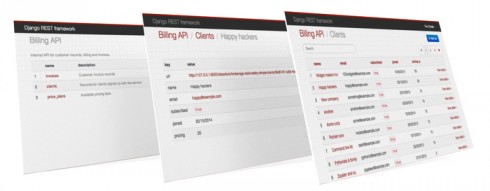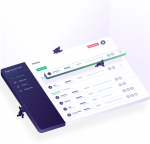
The framework for building Web APIs for Django has reached version 3.0. The release comes almost six months after the framework’s creator, Tom Christie, took to Kickstarter to fund it.
“Since its initial release in 2011, Django REST framework has been developed almost exclusively in personal time,” Christie wrote on the project’s Kickstarter page. “Professional, polished, well-documented software projects take a lot of time to build. Given family and work commitments, building a major new release of the project in my personal time is not a feasible option.”
The Django REST framework features a Web-browsable API, serialization, authentication policies, extensive documentation, and customization. Christie set a goal of £4,000 (about US$6,300), and after about two months and 440 backers, the project reached £32,650 (US$51,375) of funding.
“I was fairly amazed with the level of funding that we got,” Christie said. “For the companies and individuals funding the project, it’s just a good investment because it’s collaboratively funded; everyone’s paying a relatively small amount and in exchange they get the security of knowing that the framework they’re using is going to continue to remain well supported and maintained.”
The Kickstarter project was set up to address what Christie said was the most pressing need for the framework: a major overhaul of its serializers. Version 3.0 features simple model serializers in order to make it easier for developers to understand and debug serializer classes.
Other features include:
• A new BaseSerializer class for writing serializers for alternative storage back ends or for customizing serializers
• Printable illustrations on serializers
• New default implementations for generic views
• Support for overriding how APIs handle validation errors
• A meta API for developers to customize requests handled by APIs
“With this particular release, there’s a lot of work under the hood, just addressing some of the fundamentals,” Christie said. “I’ve been concentrating on getting the project to a really simple, focused core, and I’m really happy with the result.”
According to Christie, version 3.0 is just an incremental release, and will be the first out of three releases funded by Kickstarter.
According to framework’s website, the next release (3.1) will focus on:
• The public API for using serializers as HTML forms
• Request parsing, mediatypes and the implementation of the browsable API.
• Better support for API versioning.
More information is available here.






